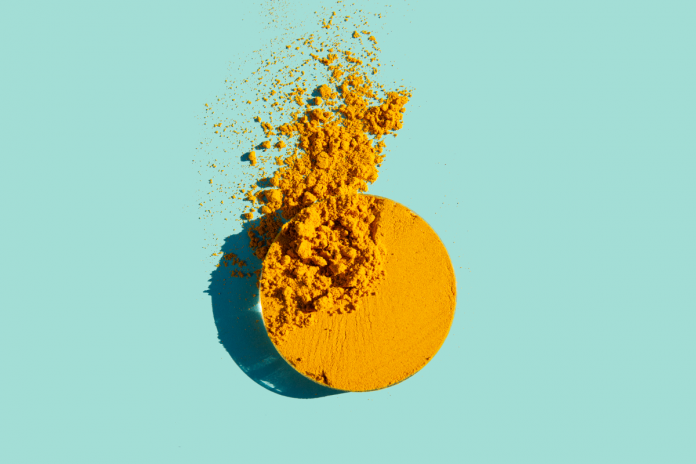Rosemary – or rosmarinus officinalis – is a member of the mint family, grown in the Mediterranean region along with its other herbal cousins oregano, basil, thyme and lavender.
And like other herbs, the leaves of the rosemary plant have uses beyond seasoning — they can indeed be used to make herbal tea!
Rosemary tea has a unique flavor and aroma and multiple health benefits. It was used in ancient Ayurvedic medicine to treat a multitude of ailments, including everything from muscle pain and fatigue to cuts and bruises.
Today, we know a little more about what exactly makes this plant a powerhouse.
Here are five health benefits of rosemary tea, what it tastes like, and how to brew the perfect cup.

Is Rosemary Tea Good for You?
Rosemary is a good source of several vitamins and minerals, including iron, calcium, Vitamin B6 and Vitamin C, not to mention other polyphenolic compounds with antioxidant properties.
It is abundant in two compounds — rosmarinic acid and carnosic acid — which are responsible for much of rosemary’s health benefits. These include:
-
A Healthy Microbiome
Both rosmarinic and carnosic acid are prebiotic, meaning they feed good bacteria in the gut. [1] When probiotics ferment in the gut, they produce short-chain fatty acids, which provide energy to the cells lining the colon, resulting in a healthier set of pipes.
A healthy gut and flourishing microbiome have several downstream health benefits, including support for a healthy anti-inflammatory response, a strong immune system, healthy digestion and nutrient absorption, and an efficient metabolism. [2]
-
Antioxidant Activity
In addition to rosmarinic and carsonic acid, rosemary contains other polyphenols that neutralize free radicals — metabolic byproducts that damage cells. Researchers have found that carsonic acid in particular protects lipids from oxidation [3].
That’s important because the membrane of every cell is composed of lipids — if these lipids become damaged, the cell may die. When free radicals outnumber antioxidants in the body, the result can be accelerated cell death which can play a role in a number of problems — including cardiovascular and neurological issues, and accelerated aging. [4] [5]
By protecting cells from oxidation, carsonic acid and other antioxidant compounds found in rosemary help to strengthen the body’s defenses against these processes.
-
Help for Stress
Some studies suggest that regular rosemary consumption can relieve stress and improve mood.
In one such study, 66 workers were randomly assigned to one of two groups; the first group drank a cup of rosemary tea every day for two months, while the control group received nothing. At the end of the study period, the rosemary-drinking group reported reduced feelings of burnout [6].
If you’re feeling a little frayed at the edges, working a cup of rosemary into your tea-drinking routine could help instill a sense of calm. It helps, of course, that rosemary tea is caffeine-free.
-
Healthy Eyesight
The antioxidant effects of carnosic acid may also help to support healthy eyesight, according to researchers at the Sanford-Burnham Medical Research Institute. Over time, retinal cells can become damaged due to cumulative light exposure, and due to the buildup of free radicals and cell damage that naturally occurs with age.
In this study, researchers induced oxidative stress in retinal cells through both light exposure and the application of damaging chemicals. Then they applied carnosic acid. The acid halted or slowed the oxidative process, protecting the cells from further damage. [7]
Of course, drinking rosemary tea is a little different from applying its compounds directly to your eyeballs, but nonetheless the research suggests that regular consumption of carnosic acid could help the body support against age-related degeneration of eye health.
-
Brain Function
Rosemary contains a compound called eucalyptol, which has been shown to support memory and cognitive performance. In one study, researchers had 20 volunteers complete a series of simple mathematical equations and visual processing tasks. Some volunteers completed these tasks in a room filled with eucalyptol aroma — and those volunteers passed their tests with greater speed and accuracy. [8]

Does Rosemary Tea Have Any Side Effects?
Despite these health benefits, too much of a good thing can still be bad. In large quantities, rosemary tea has been shown to have blood-thinning effects.
If you are already taking a blood-thinner, medication to reduce high blood pressure (like ace inhibitors), or an anticoagulant, too much rosemary tea can amplify the medication’s effect and increase bleeding risk.
Because of this bleeding risk, excessive amounts of rosemary tea can also increase the risk of miscarriage, so pregnant women should limit their consumption or avoid it altogether.
For most healthy people, however, a reasonable amount of rosemary tea — like a cup per day — will have no adverse effects.
What Does Rosemary Tea Taste Like?
Rosemary tea does have a distinct pine-y aroma and flavor, with hints of lemon and mint (it is part of the mint family, after all).
Because of its strong taste, it’s best enjoyed with a lemon wedge or a bit of sweetener. Rosemary can also be combined with other herbs, spices or true teas to create a more balanced flavor profile.
A blend of rosemary, sage and mint, for example, is a popular combination.

How To Make Rosemary Tea
You can make rosemary tea using fresh or dried herbs. In either case, use one teaspoon of herbs per cup of water.
Using fresh rosemary is a bit easier as you can keep the leaves attached to the sprig, and simply pluck the whole bundle out after steeping. With dried rosemary, you’ll need a tea infuser or strainer.
While some herbs and teas can’t handle too much heat, rosemary is a hearty herb, so you can bring your water to a full boil. Pour the boiling water over your herbs and let it steep for around 5 minutes.. Adjust the amount of rosemary leaves and steeping time to suit your taste.
More leaves and a longer steep may draw out more of the plant’s vitamins, minerals and polyphenols, but will produce a stronger pine flavor.
The Takeaway
Rosemary is a delicious herb that you can enjoy as more than just a seasoning.
Make a tisane by steeping the leaves in hot water for at least 5 minutes, and you’ll draw out the essential oils, antioxidants and other micronutrients that rosemary has to offer, which confer multiple potential health benefits.
Keep in mind that you should avoid large quantities of rosemary tea if you are pregnant or taking a medication that reduces blood pressure.
While rosemary tea can be enjoyed on its own, you may want to blend it with other herbs or teas, add some lemon or sweeten with a bit of honey or agave syrup to balance out its pine flavor. Enjoy!





